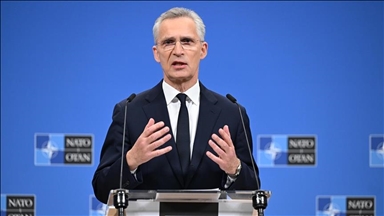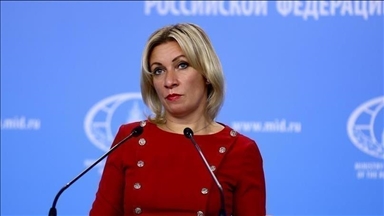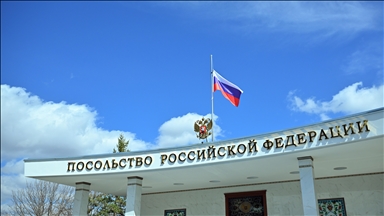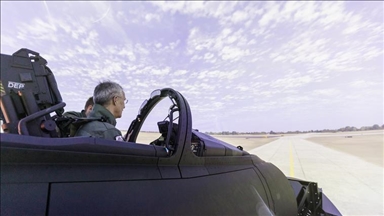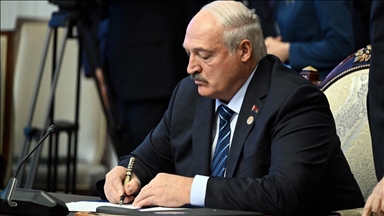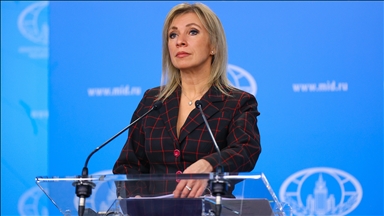Russia warns of 'provocation' against Venezuela
‘Dangerous large-scale provocation is scheduled on Feb. 23,” foreign ministry spokeswoman says
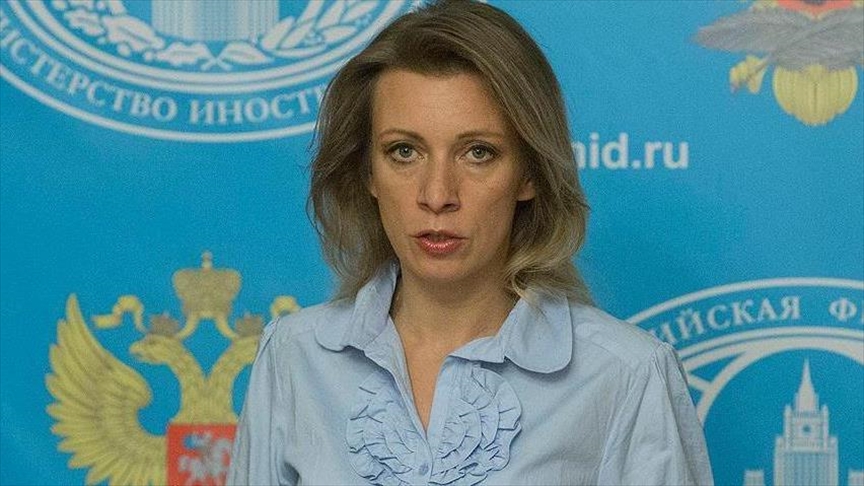
By Elena Teslova
MOSCOW
The Venezuelan crisis has come to a red line, Russian Foreign Ministry spokeswoman Maria Zakharova said Friday.
"A dangerous large-scale provocation is scheduled on February 23,” Zakharova said at a wide-ranging news conference. “Washington's instigated and led transfer of the so-called humanitarian convoy is fraught with a clash of supporters and opponents of the current government, which forms a convenient pretext for a military operation to remove the current legitimate president from power.”
The U.S. and NATO are working to buy arms in "an Eastern European country" to transfer to the Venezuelan opposition, she said, adding Washington continues with troops and military equipment shift to Venezuela’s borders.
Cuba is the next target
Zakharova said Cuba is the next state where a military coup can be organized.
A referendum for constitutional changes Feb. 24 can be used as a point for disagreements in which opponents can start a confrontation in an effort to overturn the government, she said.
Remarks by U.S. President Donald Trump about the necessity to change power in Cuba and a statement by Secretary-General of the Organization of Americans States about "dictatorship in Cuba" and "undemocratic nature of the constitutional project," against the background of the Venezuelan crisis, raises serious concerns about possible developments in Havana, she said.
"Every nation has the right to choose the government at its own discretion and others have to respect this choice," she said.
First case of the leprosy in Rukban camp
Turning to Syria, Zakharova said the first case of leprosy was reported in the Rukban refugee camp.
Thousands of Syrians continue to suffer from appalling conditions in the camp in the deserts of Syria's border with Jordan. "Dozens of casualties and the first case of the leprosy are registered in the camp," she said.
The camp hosts 40,000 Syrians struggling in makeshift tents and muddy shelters.
The Syrian Network for Human Rights has reported growing numbers of casualties in the camp due to starvation, disease and lack of medicine.
Russian-US efforts contribute to the Afghan reconciliation
Russian-U.S. interaction on Afghanistan will boost national reconciliation there, she said.
The number of territories under the control of the acting government is decreasing, according to Zakharova.
"Positive results of the inter-Afghan meeting in Moscow on Feb. 5-6 and talks between the U.S. Envoy for Afghanistan Zalmay Khalilzad with the Taliban opened a path for a launch of inclusive peace process in Afghanistan," she said as she urged "regional and international partners" to provide assistance for Afghans.
US refused to reconfirm impossibility of a nuclear war
Zakharova said Washington "left unanswered" a Russian proposal to reconfirm adherence of the two countries to continue efforts to prevent a nuclear war.
That decision, along with the U.S. withdrawal from other disarmament treaties, creates tension in international relations, she said.
"All Russian proposals remains on the table," she said.
In the last few decades the world has witnessed the destruction of the international legal base for disarmament.
In October 2001, U.S. President George Bush announced Washington unilateral withdrawal from the Anti-Ballistic Missile Treaty -- considered a pillar of international security.
In October 2018, U.S President Donald Trump announced the exit from the Intermediate-Range Nuclear Forces Treaty (INF).
In a tit-for-tat response, Russian President Vladimir Putin said Feb. 2 that Moscow was suspending its obligations under the INF treaty.
The treaty has been widely seen as a cornerstone of European security in the post-Cold War era after the U.S. and Russia signed it in 1987. It prohibits both countries from possessing and testing ground launch missiles with a range between 300 – 3,100 miles (900 - 5,500 kilometers).
The prolongation of the last "pillar", the START Treaty, is currently under question as the U.S. links it with the INF Treaty.
Anadolu Agency website contains only a portion of the news stories offered to subscribers in the AA News Broadcasting System (HAS), and in summarized form. Please contact us for subscription options.


